MercoPress. South Atlantic News Agency
Tag: Inflation
-
Monday, January 14th 2019 - 09:31 UTC
Argentina's annual inflation during 2018 estimated at 48%, highest since 1991
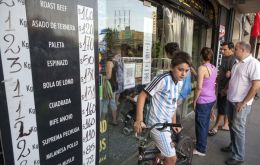
Argentina's stats office Indec, is scheduled to announce December's inflation and for the whole of a very volatile 2018 next Tuesday, with estimates ranging at 48%, the highest in the country since 1991. November's Consumer Price Index was 3.2%.
-
Friday, December 28th 2018 - 09:05 UTC
Buenos Aires public transport rates up 40% in three months, beginning January
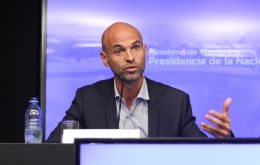
The Argentine government announced on Thursday new increases in public transport rates, some 40% on average that will apply from next January to travel by bus, train and metro.
-
Thursday, December 13th 2018 - 21:19 UTC
Socialist Pablo Iglesias regrets about Venezuela: “The political and economic situation is disastrous”

The Spanish Socialist leader, Pablo Iglesias, appeared before the Spanish Senate on Thursday over the alleged illegal financing that his political coalition, Podemos, could have received from Venezuela and Iran. In a tense debate with a senator from the Popular Party (PP), Iglesias said that the situation in the South American country “is disastrous” and that he regrets things he has said in the past.
-
Friday, October 26th 2018 - 00:48 UTC
Dujovne foresees Argentina's October inflation “will be bad”

Argentina's Finance Minister Nicolás Dujovne Tuesday admitted October's inflation “will be bad” due to the September carryover. But he expected “a clear drop” for November.
-
Monday, October 1st 2018 - 08:56 UTC
Beijing currency swap support for Argentina
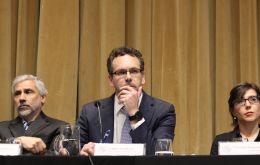
Argentina has “nearly closed” a new currency swap deal with China that will add the equivalent of US$ 9 billion to the South American country’s reserves, the central bank said on Sunday. Argentina and China first agreed to a swap program in 2009 to boost the South American country’s dwindling reserves under former President Cristina Fernandez. Last year, the center-right government of President Mauricio Macri and China agreed to extend the program for three more years.
-
Monday, September 24th 2018 - 09:19 UTC
Macri in New York to convince investors Argentina in on track to stability and address the UN assembly
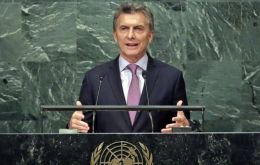
Argentine president Mauricio Macri is in New York where he is scheduled to address the United Nations General Assembly on Tuesday, but will also be holding a round of talks with business leaders and potential investors, plus granting interviews to key media outlets.
-
Thursday, September 20th 2018 - 08:37 UTC
Brazil leaves interest rates unchanged, as long as inflation remains in target range
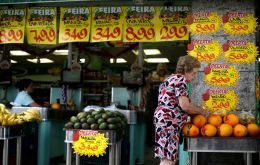
The Brazilian central bank on Wednesday held interest rates at an all-time low despite a currency selloff, as widely anticipated, but said it could “gradually” raise them in the future if inflation expectations spike.
-
Wednesday, September 19th 2018 - 08:11 UTC
China agreed to invest US$ 5bn in Venezuelan oil, alleges Maduro
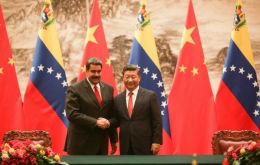
Venezuelan President Nicolas Maduro said on Tuesday that new investments from China will help his country dramatically boost its oil production, doubling down on financing from the Asian nation to turn around its crashing economy.
-
Friday, September 14th 2018 - 09:18 UTC
Argentine inflation in August rose 3.9%, and 34.4% in twelve months

Argentina says consumer prices rose 3.9% in August, the highest rate so far this year. That brings the 12-month nationwide inflation rate to 34.4%, one of the world's highest.
-
Thursday, September 13th 2018 - 10:39 UTC
IMF team in Buenos Aires for talks on the standby loan package
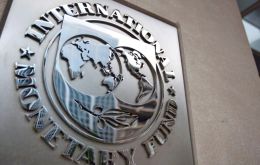
Officials from the International Monetary Fund are in Argentina as part of talks to strengthen and accelerate a crisis loan package, the global lender said Wednesday. The IMF and Buenos Aires agreed in June on a three-year, US$50 billion rescue lending programme but Argentina has since asked for a more rapid disbursement.
